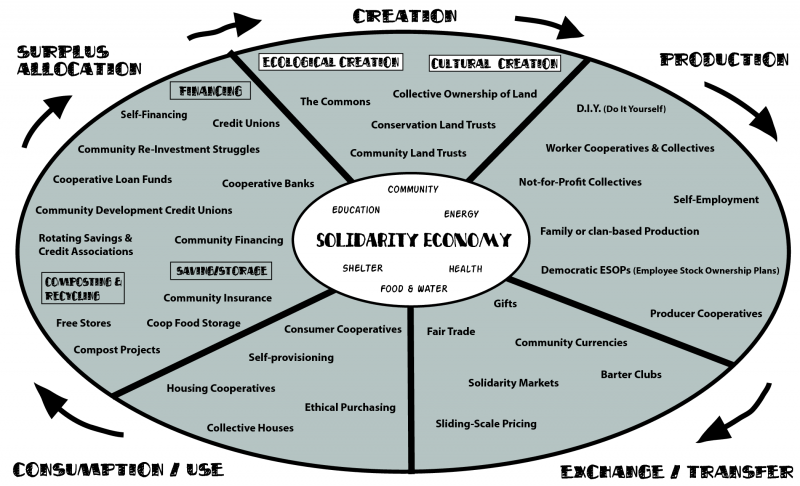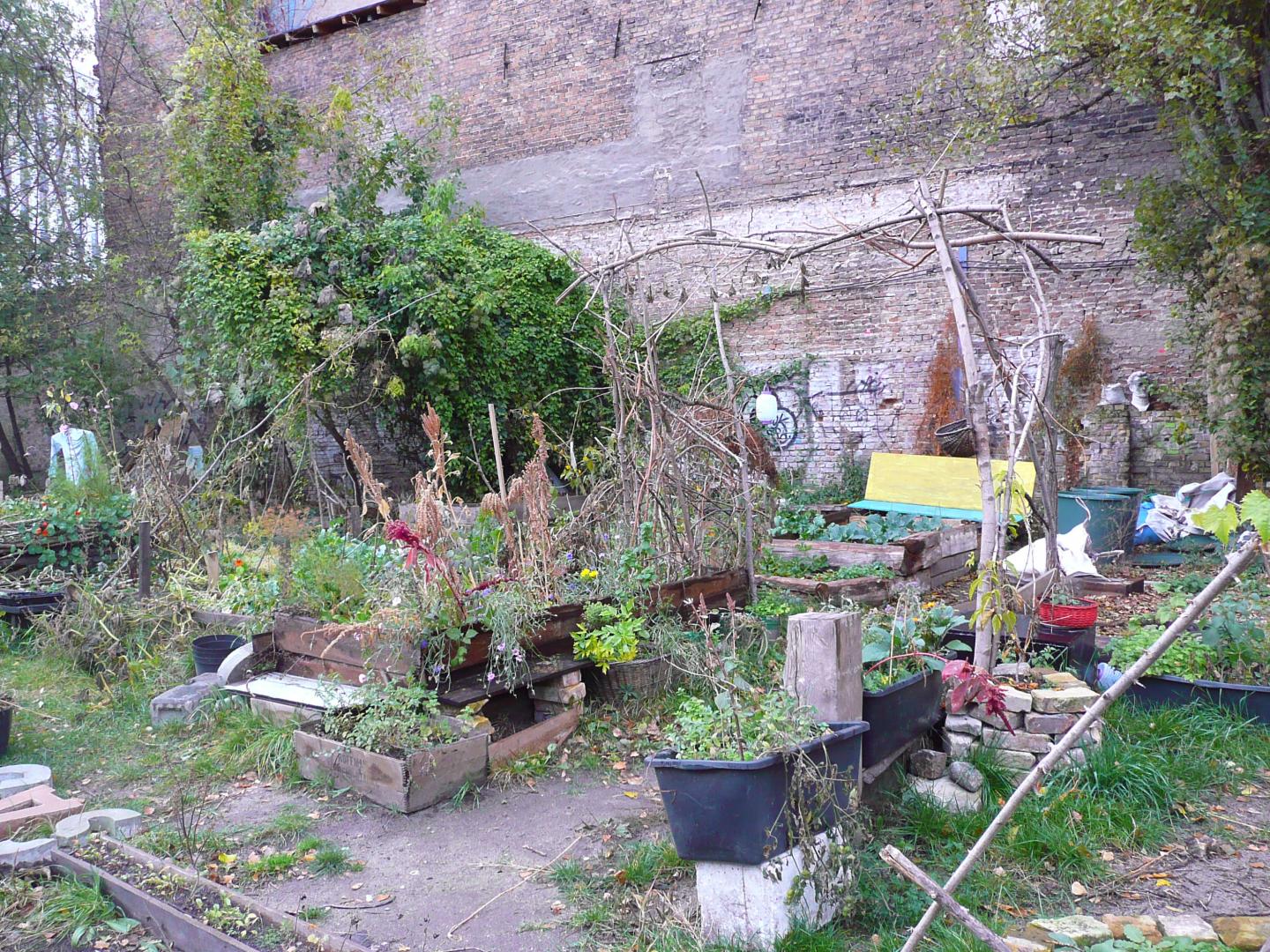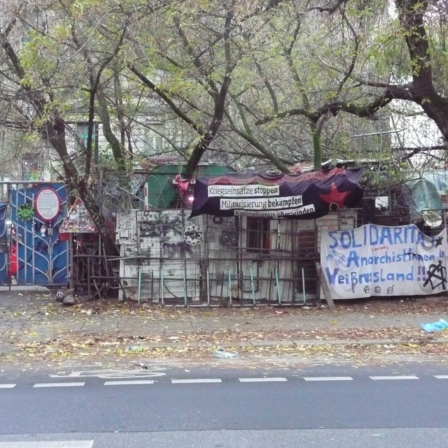This article is part of an online series about the experiences of the Sustainable Economy Forum during their trip to Berlin, 4–8 November 2012.
On their first day in Berlin, the members of the Sustainable Economy Forum met the researcher Karl Birkhölzer. Birkhölzer talked about a phenomenon with many names: social economy, solidarity economy, communal economy, social enterprises…
“All these are a part of a larger movement of alternative economy,” says Birkhölzer. He considers there to be four parallel economic systems operating simultaneously in the society:
- The first sector: private economy. The aim of economic activities is to generate profit;
- The second sector: mixed economy. Private sector makes a profit. The public sector sees to unprofitable functions that are, nevertheless, necessary for society, such as education;
- The third sector: social economy. Meets the needs not satisfied by private and public economies;
- The fourth sector: shadow economy. Activities taking place outside the official economy, such as volunteer work in small communities, bartering or the black economy.
According to Brikhölzer, the social economy meets the needs that are not satisfied by the markets or the state. He emphasised that it is a question of meeting basic needs, not mere desires. In all its simplicity, the task of the economy is to create products and services to satisfy these needs while using resources as efficiently as possible.
“Social economy starts out from individuals and operates because of them,” says Birkrhölzer. “It aims to do good for the community and it holds the generation of social value as more important than generating economic value. Economy is first and foremost a means to achieve primary, social, cultural and ecological objectives.”
Social economy may be organised around social enterprises or volunteer organisations. More free-form organisations, such as community exchange systems, food cooperatives, urban cultivations, barter clubs, claimed houses, etc. are also often considered forms of social economy.
A map on solidarity economy by Ethan Miller, who has studied the subject:

Read here about the kinds of solidarity economy phenomena the forum encountered in Berlin.


Recommended